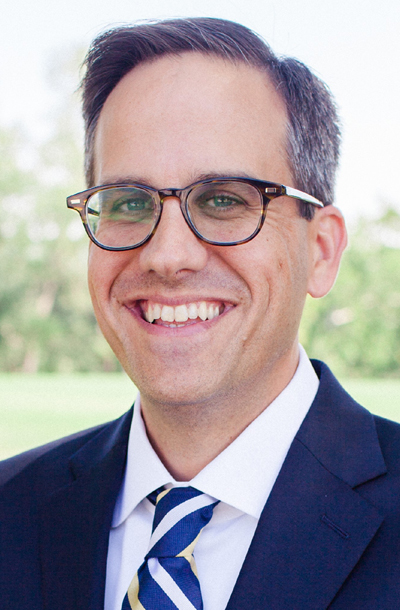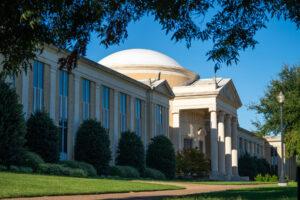
KANSAS CITY, Mo. (BP) — Some figures in history accomplish the work of multiple lifetimes within a single life. Like the resplendent Martin Luther in the 16th-century Reformation, some leaders function at a capacity that wearies the rest of us just in the thinking of it. Yet, scores of lives have benefited from what these great men did with the time that was given to them.
When a future history is written of the triumphs and travails of the Southern Baptist Convention of the late 20th and early 21st century, there is no debate whether the name Paige Patterson will have a sizable number of entries in that volume’s index. For at the time when this convention of churches was undergoing a theological crisis, God provided many timely leaders, and one of the giants among them was Patterson.
Regularly, the hinges of history’s precarious moments have turned on the courageous actions of great men. For those of us impacted by their imprint, we recognize that we see the world, and God’s work in it, more clearly, not because of any sizeable stature on our part but because we are, in fact, standing on the shoulders of these giants.
Significant, though, in this epoch of change was the vehicle in which Patterson carried out his ministry of influence and discipleship. Not often considered is that Patterson has shaped a generation principally from the unique post of the presidency of schools of theological education for four decades.
 On Feb. 24, 1975, 40 years ago this week, Patterson was elected as president of what would become Criswell College in Dallas. From the age of 32, Patterson built that school not only into a premier training center for future ministers — but also for future leaders in the Southern Baptist Convention for decades to come.
On Feb. 24, 1975, 40 years ago this week, Patterson was elected as president of what would become Criswell College in Dallas. From the age of 32, Patterson built that school not only into a premier training center for future ministers — but also for future leaders in the Southern Baptist Convention for decades to come.
After 17 years in Dallas, Patterson went to serve as president at Southeastern Baptist Theological Seminary in Wake Forest, N.C. The reformation of that school is a story fit for the cinema, and the transformation of the eastern seaboard of churches, new and old, to this day can be traced back to the recovery of that institution for theological good.
At age 60, when many thought Patterson would certainly retire in North Carolina, he agreed to return to Texas as president of the century-old Southwestern Baptist Theological Seminary, where he continues to serve. There, too, he has helped reshape and fortify a school to which Southern Baptist churches can, with confidence, send their young men and women for quality training and theological preparation.
The leadership of Paige Patterson leveraged from the presidencies of these three schools has refashioned the landscape of Southern Baptist and evangelical theological education. Here are just three of many examples.
First, Patterson was an educational innovator long before the advent of the Internet required us all to think outside the box. From creative missions platforms that accelerated students to the ends of the earth, to a legendary ability to cultivate faculty and administrators who go on to shape their fields and lead other institutions of significance, Patterson refashioned the paradigm for what a college and seminary president could be and do.
Patterson’s educational philosophy has always been more pastoral than clinical, but amazingly without sacrificing academic quality. During the 1990s when the trend was to decrease the amount of biblical languages required for a master of divinity degree, Patterson increased the minimum hours of Greek and Hebrew and his school grew while others plateaued.
Finally, in a post-recession era of crumbling investments and hesitant donors, Patterson here, too, has redrawn the map of the status quo, this time in terms of evangelical fundraising. At a time when Christian schools without sports programs and minimal endowments are closing their doors, Patterson has seen exponential growth for his school in every category of giving.
The simple fact is that if, with the aid of Marty McFly’s Back to the Future time machine, we were able to go back 40 years and alter the future impact of Paige Patterson on theological education and return to 2015 as observers, those of us trained in Southern Baptist schools or serving now in theological education would not recognize our world or ourselves in it. The truth is that as Southern Baptist colleges and seminaries prosper today, it is in large part due to the fact that we are able to see more clearly and do our ministry more effectively having built upon the transformative work of Paige Patterson.
In Paul’s letter to the Philippians, he instructs those believers to “honor such men” who have served God and the Gospel well (Philippians 2:29). On the occasion of 40 years as a president, Patterson’s decades of service are worth contemplating, imitating and honoring. How grateful I and many others are for the privilege of standing on the shoulders of this giant. Any strides forward in theological education today are due in large part to Patterson’s four-plus decades of transformative leadership.
Congratulations, President Patterson.

















